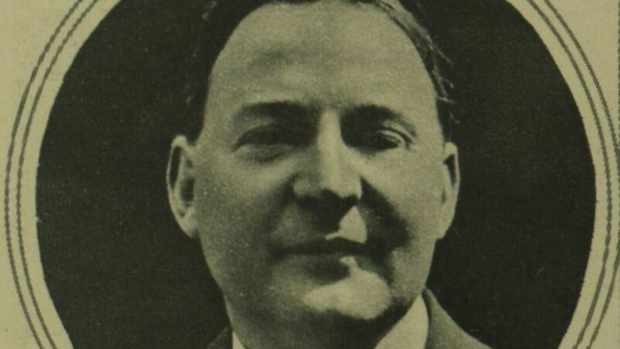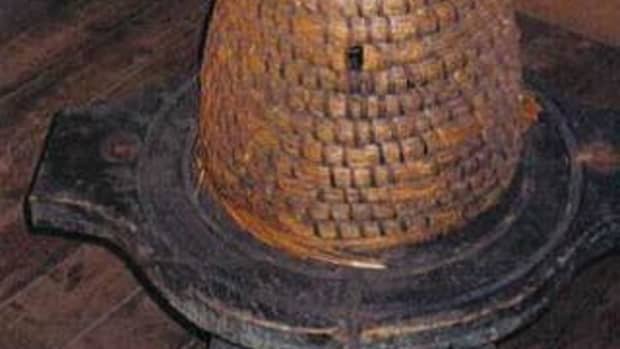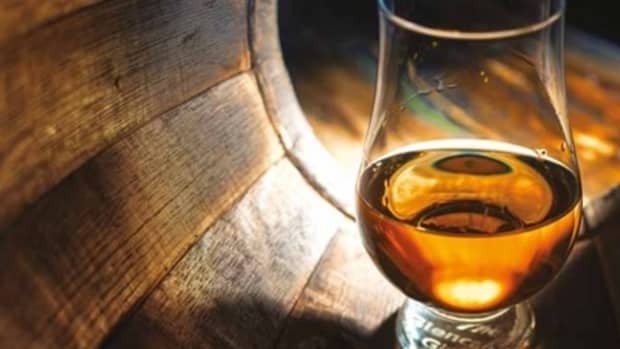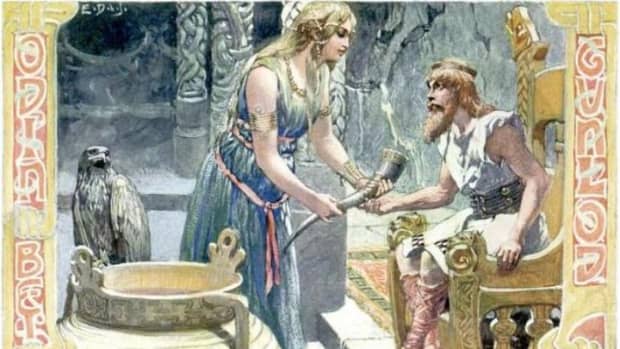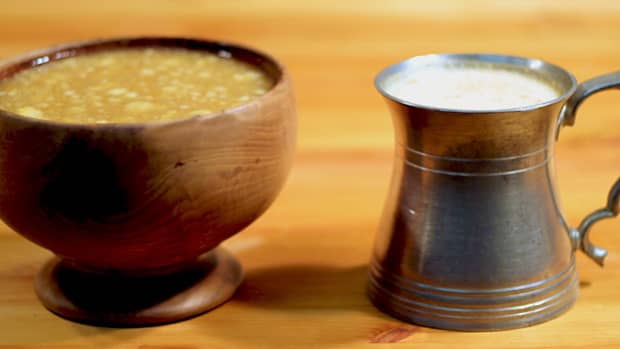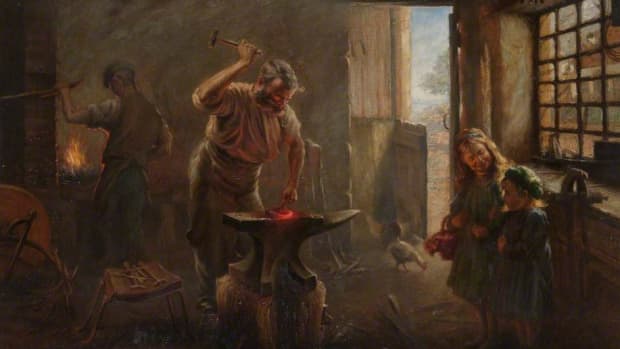The Celtic Lore of the Honey Bee
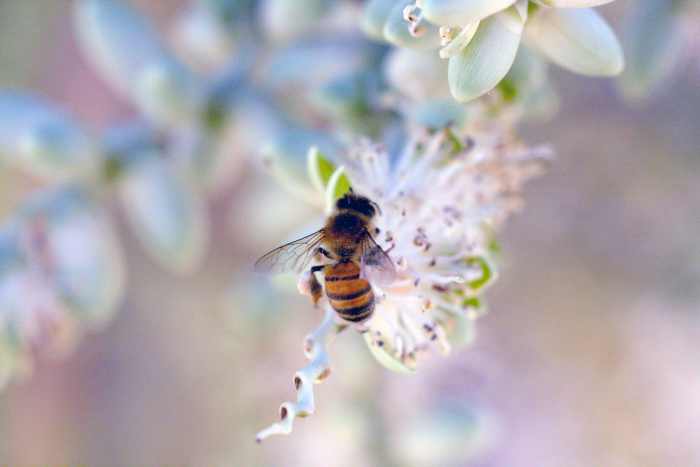
Interested in Celtic bee lore? Ever heard of the Celtic bee goddess or the custom of telling the bees? Read on to begin discovering this interesting alley of history and culture!
Bees in Celtic Mythology
It’s been said that the Celts, being a tough race that fits in well with the northern latitudes, came to Britain specifically for the black bee and its honey. Even the Welsh bards of old called Britain the “Isle of Honey” due to the sheer number of wild bees flying to and fro.
It’s no wonder then that the Celtic peoples, both ancient and modern, have built up vast lore around this marvelous insect, giving us an indication as to just how much it was, and still is, honored throughout the Celtic nations.
In Celtic myth, bees were regarded as having great wisdom and acted as messengers between worlds, able to travel to the Otherworld, bringing back messages from the gods. In the western isles of Scotland, bees were thought to embody the ancient knowledge of the druids. This led to the Scottish lore of the secret knowledge of the bees, along with the Scots saying “Ask the wild bee for what the druid knew.” Highlanders believed that during sleep or while in a trance, a person’s soul left the body in the form of a bee.
This wisdom translated through into the Christian era, with folk tales in Scotland and England stating that bees would hum loudly at midnight on Christmas Day for the Savior’s birth. Bees in Cornwall could only be moved on Good Friday. The lore of being able to travel through realms was changed into bees coming directly from Paradise.
It is necessary to treat the bees as members of the family. They should be informed of all family happenings, from births to deaths and events in between, especially weddings. Beekeepers also needed calm voices, as the bees did not take harsh words lightly. Either offense could result in the hives not producing honey all the way to leaving their beekeeper. Their leaving was considered very dangerous, as owners who lost their bees were surely doomed to die!
Celtic Custom of Telling the Bees
The lore of bees and death is especially spoken of. In Wales, if there was a death in the family, it was important that someone in the family told the bees before the funeral, as well as tying a black ribbon to a piece of wood and putting it in the hole at the top of the hive. This would protect against further deaths in the family.
In Cornwall, a family member would relate the death to the bees with “Brownie, brownie, brownie, your master is dead,” and in Buckinghamshire with the slightly smaller “Little brownies, your master is dead.” The bees would then hum if they chose to stay with the family. Irish folk tales tell that the hives were to be decorated with black cloth and were to be given their share of the funeral food.
It was considered an ill omen if a swarm settled on a dead branch, indicating death for that beekeeper’s family or the swarm witness. In Wales, if a swarm entered a house, it was unlucky and foretold death. Other Welsh folklore contradicts this, though, as it’s also been told that a swarm entering a house or garden is good luck, then bad luck if it later leaves. Combine it with the tales of owners dying when their bees leave and you really want them to stay! In Cornwall, if you are able to throw your handkerchief over a swarm, you would claim the swarm and the good luck that went along with it.
When obtaining a hive, one should never pay for a swarm, as that hive would then not produce. Rather, you would pay the original owner back with honey and comb. Nor would a stolen hive give any honey, with Welsh legends speaking of stolen hives dying.
The products of the bee, honey and mead, were used for magic and medicine. The Scots used a potion consisting of equal parts heather honey, cream, and whisky to cure wasting diseases. The ancient custom of feeding milk and honey to infants comes from giving them hazel milk mixed with honey.
Finn mac Cumhaill, Irish hero extraordinaire, was given a goblet of mead to befuddle his senses in order to be tricked into marriage. You can appease the Shining Ones at Beltaine by making honey cakes to leave outside in the garden, with the recipe calling for both honey and white wine, although using mead is also acceptable, of course.
Brigid, Celtic Bee Goddess
The Celtic bee goddess Brigid held bees to be sacred, with her hives bringing their magical nectar from her Otherworld apple orchard. Even the rivers that led into the Otherworld were of mead. St. Gobnait, who may be a Christianized version of Brigid, protected her people with bees, using them to stop cattle thieves and using the honey as a healing aid against the plague. Henwen, the mythical sow of Dadweir Dallpenn, left three bees and three grains of wheat in Gwent, which has since produced the best honey and wheat to be found.
The Bech Bretha are early Irish laws made to protect bees and handle their interactions with people. Don’t steal a hive, for that is a capital offense. If you were stung but did not retaliate, you received a meal of honey from the beekeeper. If you died from the sting, your family would receive two hives! In Wales, Hwyel the Good wrote laws concerning the production of mead and the role of the mead maker.
All this is just the top of the honeycomb. Delving even deeper into Celtic bee lore may make you sticky as you work your way through the comb, but it is worth the very sweet time.
Sources and Further Reading
Notes on the Folk-lore of the North-east of Scotland, by Walter Gregor
Welsh Folk-Lore - a Collection of the Folk-Tales and Legends of North Wales, by Elias Owen Denbighshire
Celtic Folklore Cooking, by Joanne Asala
The Lore of the Honey Bee, by Tickner Edwardes
The Sacred Bee in Ancient Times and Folklore, by Hilda M. Ransome
A Brief Guide to Celtic Myths and Legends, by Martyn Whittock
This content is accurate and true to the best of the author’s knowledge and is not meant to substitute for formal and individualized advice from a qualified professional.
© 2015 James Slaven
Comments
James Slaven (author) from Indiana, USA on December 11, 2019:
Hi, Moira! You are correct, although I know I found something about her being related to Brigid, as well, but now I have to dig it out. This may take a while!
Moira Johnson on June 23, 2019:
St. Gobnait is the Christianized version of Brigid? Don't you mean St Brigid is the Christianized version of the goddess Brigid? After all, they're both associated with fire, wells, cattle, and are venerated around Imbolc.
James Slaven (author) from Indiana, USA on July 06, 2018:
Thank you, Michelle! I appreciate the wonderful words. :)
Michelle on July 06, 2018:
Fantastic article james very intresting thank you :)
James Slaven (author) from Indiana, USA on December 16, 2015:
Thank you, Kristen! That means a lot to me.
Kristen Howe from Northeast Ohio on December 16, 2015:
James, this was a lovely hub. It was real interesting to know about the history of the honey bee. I agree with Linda. It was well written and well thought out. Nice work!
James Slaven (author) from Indiana, USA on December 15, 2015:
Thank you, Linda! Now that I am finishing up my initial uploads of my own works, I am looking forward to perusing your writing, as well as another few that I've seen. I'm looking forward to it!
Linda Robinson from Cicero, New York on December 14, 2015:
Hello James Loved the hub. So much detailed information and well written. Extremely fascinating and holds your interest throughout the hub. So nice meeting you. I look forward to reading many more of your hubs. Take care. Linda




